International research: AKU celebrates 18 years of PhDs with the Karolinska Institutet
Nine degrees awarded, three more in the pipeline.
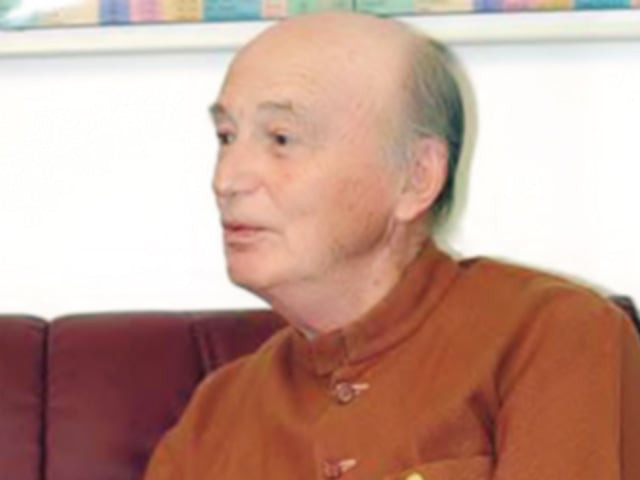
The sandwich system of research and study has allowed researchers to conduct most of their work in Pakistan and visit Sweden for three months to work with a supervisor. This proves to be economical as over the four-year PhD programme moving to, living and researching in Sweden can become expensive. The expenses for the extensive programme, estimated at about US$10,000, is paid for by external funding which includes the Swedish international development authority and a small chunk from the AKU kitty as well. For its part, the Higher Education Commission used to offer an exchange programme with Sweden but it had many restrictions (the applicant could not be over 40 years old) and is said to be defunct now.
To celebrate the occasion, several researchers presented their work and findings at the university hospital. The partnership with Karolinska began in 1992 and the two centres have conducted several research and training collaborations since then.
The chief guest at the event was Professor Emeritus Bo Lindblad of the International Child Health, Global Health Division, KI, and the department of paediatrics, AKU). According to him, research in nursing is one of the areas where Pakistan is currently most lacking. “I have always been a great believer in Pakistani women and their role in taking the country forward,” he says. One of the areas of collaboration has been on the implementation of the balance score card, a management tool, by Dr Fauziah Rabbani, professor and interim chair of the department of community health services in four units of the hospital.
“Our theory is simple: Pakistan is not a poor country it is a poorly managed country. We need to better organise our departments,” she explains. There are four areas of focus - patient satisfaction, employee satisfaction, good return on investment and quality care. According to Dr Rabbani, such a system has yet to be implemented in low-income countries such as Bangladesh, Africa etc. but in middle-income countries such as Singapore, it has exhibited “remarkable results”.
On the approaches to research, Dr Tashfeen Ahmad, assistant professor for the department of surgery and BBS, shared his thoughts. “When comparing research methods I noticed that in Sweden they were not impulsive in making a decision or in a hurry for a breakthrough,” he said, “and while this is good from a research perspective it may not be very conducive from an efficiency and administrative point of view.”
In Pakistan, Ahmad elaborates, generally researchers are “short-sighted and look for immediate results failing to realise that a great deal (of time and energy) needs to be invested for quality work.” Judging by the annual budget and the current population, Ahmad says it is evident that healthcare research is just not a national priority and while the government is pumping money into education, barely enough is being done to promote researchers.
Child/women health
Speaking to The Express Tribune on whether the current state of women and child health care in the country has improved compared to five years ago, professor and chair Dr Zulfiqar Bhutta said: “It depends on whose shoes you are wearing! In the Punjab and the provincially administered areas of Khyber-Pakhtunkhwa (KP), then, yes. But in other parts of KP and Fata the answer is no. And in Sindh the situation is much worse.”
There are several reasons for this, some of which are the wave of natural disasters and bad governance - on the federal and provincial level - which seem to have no sense of direction. “We are our own worst enemy,” he says. “In fact, it isn’t so much that we have deteriorated in this field as much as we have just stood still. Our parameters on maternal and new born healthcare are equal to that of Africa! We don’t even deserve to be on the list for developing countries in this regard.”
When asked for a solution, Dr Bhutta urged the private sector to play the lead role. Civil society needs to be engaged. “The private sector spends so much on education but nothing on healthcare, we’ve left it to the bureaucrats in Islamabad and that system is clearly not working.”
Drug resistance to malaria
Clearly distraught with the misrepresentation of malaria figures, pathology and microbiology assistant professor Dr Asim Beg says the number of deaths is “far higher” than reported in the official statistics. “Malaria control (in Pakistan) is pretty defunct,” he says. “And what was normally regarded as a benign disease is not as benign as people think.”
Giving the current year’s example, Beg says that usually malaria surges during the post-monsoon season, lasting from July to October or November, but now cases right through December are being registered. “Local, cheap solutions include the application of Vaseline, lotion, making bed nets and in rural areas even using wood and leaves for smoke to drive away the mosquitoes.”
Published in The Express Tribune, December 11th, 2010.


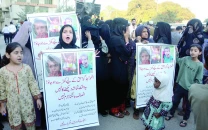
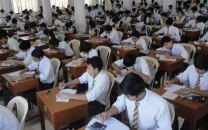

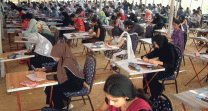
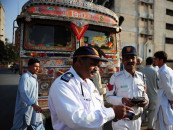












COMMENTS
Comments are moderated and generally will be posted if they are on-topic and not abusive.
For more information, please see our Comments FAQ